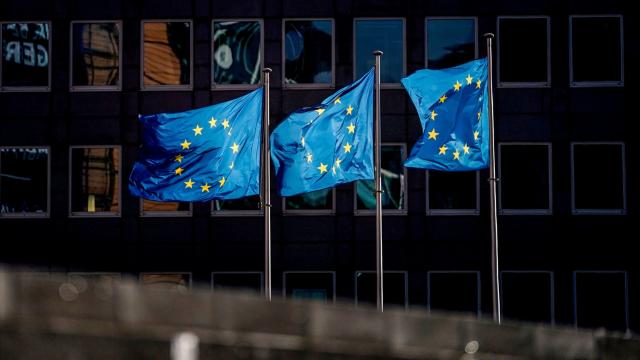While the European Commission might be better known as a force that cracks down on some of the egregious practices of stateside companies, today the folks across the pond laid out an ambitious plan to bolster their own tech prowess—ethically.
Per an announcement on the Commission’s official site earlier today, the EU’s embarking on a sprawling five year plan to promote Europe’s “technological sovereignty,” pouring billions of public funds into new innovations in fields like artificial intelligence and data collection, while at the same time drafting new rules to ensure that this tech, in their own words, “works for the people,” without allowing its own tech economy to fall prey to the monopolistic practices that rule the US tech sector.
As pointed out by the New York Times, this roadmap reflects a “growing concern” among leaders in the union about their economic dependency on companies like Google that are based outside of their jurisdiction. While Europe does have its share of niche and mid-size tech manufacturers, for the most part, the job market—and tax revenue—seems to be migrating to Silicon Valley, China, or South Korea.
The initial proposals for this five-year opus—which were laid out in a series of white papers released today— will take a solid few months of consulting and hammering out before they’re ready to be implemented into any sort of concrete legal action, according to the commission. But what is clear is that a lot of public money is going to be funneled into the process. Horizon Europe, for example, will be getting a healthy 15 billion euro (or just over 16 billion USD) for research on ‘Digital, Industry, and Space,’ with a focus on AI. The Digital Europe programme (DEP) will be nearly 2.5 billion euro (or roughly 2.7 billion USD) for “deploying data platforms and AI applications.” The Commision pointed out that the bulk of this cash “could be invested into a European High Impact project on European data spaces, including trustworthy and energy-efficient data sharing and cloud infrastructures.”
“The DEP will also support national authorities in making high-value data sets available for re-use in different common data spaces,” they added.
Though the data-privacy legislation known as GDPR has laid out a solid framework for giving EU citizens full control of their personal data, there are no real rules on the ground surrounding data portability, or the transfer of your personal data to an entity that you trust. As the announcement points out, putting those data portability wheels into motion could, one day, enable the European regulators to create a secure, single market for personal and non-personal data alike. As they point out, this market would, theoretically, “enable novel data flows, protect consumers and foster competition.” It would also give Europe the chance to tap into the roughly $US50 ($75) billion dollar data market that’s only gonna continue to swell over the next few years.
“While currently a small number of big tech firms hold a large part of the world’s data, huge opportunities lie ahead for Europe,” the announcement states. “Rapidly increasing amounts of data will be generated in the next years and storage shifts from the cloud to the edge. The EU can build on a strong legal framework in data protection, fundamental rights, safety and cyber-security; its internal market; and a large degree of interconnection in public services.”
“Citizens, businesses and organisations should be empowered to make better decisions based on insights gleaned from non-personal data,” lawmakers asserted. “That data should be available to all, whether public or private, start-up or giant.”
